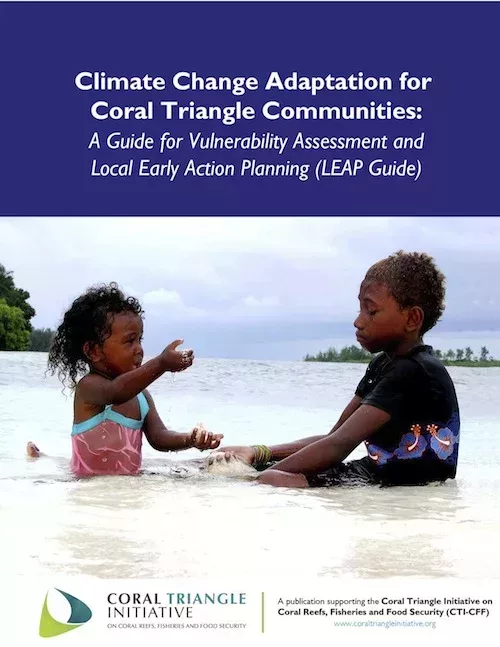1 June 2013: In a new guidebook on vulnerability assessments and early action planning at the local level, the Coral Triangle Initiative (CTI) provides a framework for helping local communities prepare for climate change adaptation planning, understand climate change impacts, conduct a vulnerability assessment and develop local action plans.
The guidebook was unveiled during a CTI meeting held from 29-31 May 2013, in Dili, Timor-Leste, among its six member countries, Malaysia, Papua New Guinea, the Philippines, Solomon Islands, Indonesia, and Timor-Leste.
Titled ‘Climate Change Adaptation for Coral Triangle Communities: A Guide for Vulnerability Assessment and Local Early Action Planning,’ it considers the range of threats affecting the ecological and social health of coastal regions, as well as their relationship to climate change.The guidebook also features: case studies from Micronesia and the Philippines; and appendices on methods for beach profiling, adaptation options identification, and progress benchmarking.
The Coral Triangle is a global epicenter of marine diversity, possessing 76% of all known coral species, 37% of all known coral reef fish species, 53% of the world’s coral reefs, the greatest extent of global mangrove forests, and spawning and juvenile growth areas for the world’s largest tuna fishery. The six Coral Triangle countries came together in 2007 to form the CTI partnership to ensure food security and safeguard the marine and coastal resources of the region. CTI is an initiative supported by the US Agency for International Development (USAID).
Source: SIDS Policy & Practice
